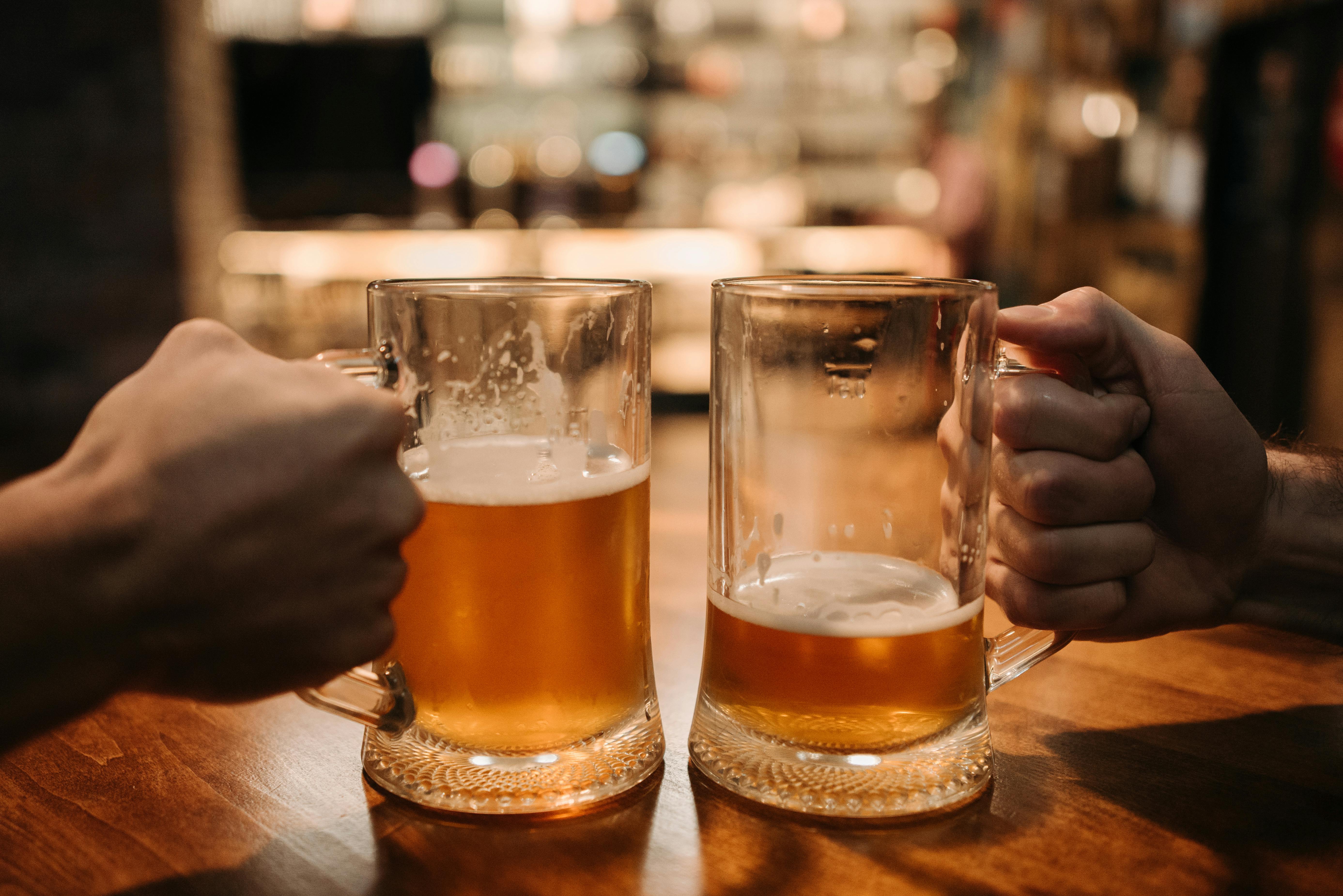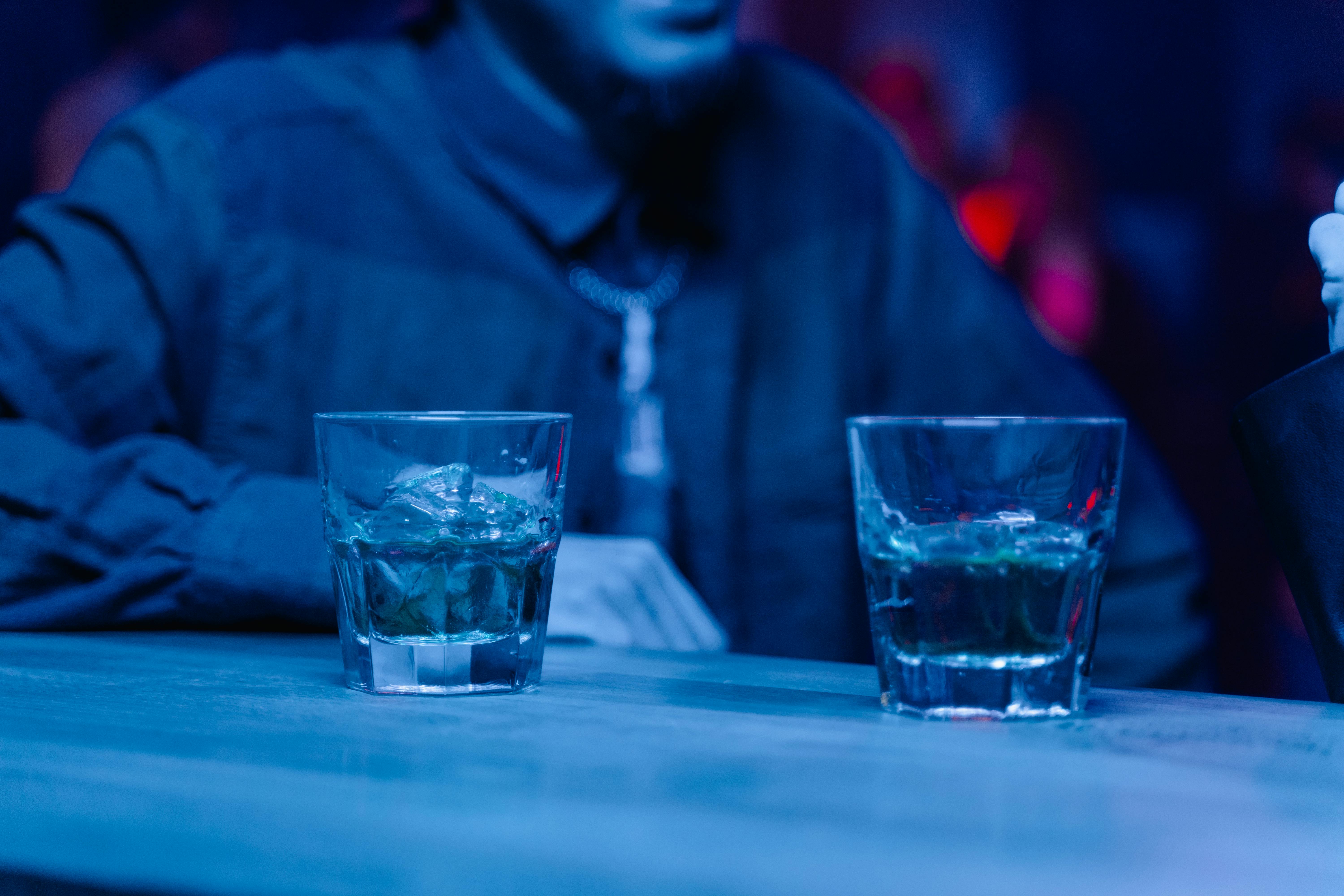Distilled alcoholic beverages, also known as hard liquor, spirits, or distilled spirits, are alcoholic beverages produced by distilling fermented grains, fruits, or vegetables. These beverages have a higher alcohol content than other forms of alcoholic beverages such as beer and wine. Distilled alcohol can range from being very light and smooth to very strong and intense in flavor. The most popular distilled alcoholic beverages include vodka, gin, whiskey, rum, tequila, brandy and absinthe.Distilled alcoholic beverages are beverages that have been through a process known as distillation. This process removes impurities from the beverage, such as unwanted flavors and colors, and results in a concentrated form of alcohol. Examples of distilled alcoholic beverages include vodka, gin, tequila, whiskey, brandy, and rum.
Types of Distilled Alcoholic Beverages
Distilled alcoholic beverages, or liquor, are beverages that have been through a distillation process to concentrate the alcohol content. Distillation is the process of heating a liquid to separate it into two components: alcohol and water. There are many different types of distilled alcoholic beverages, including vodka, gin, rum, tequila, whiskey, brandy and more.
Vodka is an odorless and colorless spirit that is typically made from grains or potatoes. It is commonly used in mixed drinks and cocktails like martinis and bloody marys. Gin is a juniper-flavored spirit made from grain and often flavored with botanicals such as coriander or citrus fruits. It is commonly used in mixed drinks like gimlets or gin and tonics.
Rum is a sweet-tasting spirit made from sugar cane byproducts like molasses or sugar cane juice. It can be either dark or light in color depending on the aging process used to produce it. Tequila is a Mexican spirit made from the blue agave plant which gives it its distinctive flavor. Popular tequila drinks include margaritas and palomas
History of Distilled Alcoholic Beverages
Distilled alcoholic beverages have a long and interesting history of production and consumption. The process of distillation began in the Middle East around 800 AD, with the first known distillation process used to create perfume and essential oils. It wasn’t until the 12th century that distilled spirits were produced, with the first known spirits being Arabic alchemists’ attempts to create an elixir of life.
The practice of distilling alcoholic beverages spread throughout Europe during the 13th century, where it was used primarily for medicinal purposes. This practice continued into the Renaissance period, during which time many monasteries began producing distilled spirits commercially. By the 16th century, distilled spirits had become popular among both rich and poor alike as a source of recreation and relaxation.
In addition to its recreational use, distilled alcohol also served important practical purposes. In many cases it was used to preserve food and medicine, as well as for bartering goods between countries or regions. It also served as a form of currency in some parts of Europe until it was eventually replaced by paper money in the 19th century.
Distilled alcohol continues to be produced around the
Health Effects of Consuming Distilled Alcoholic Beverages
The health effects of consuming distilled alcoholic beverages can vary depending on the type of beverage consumed. Generally, distilled spirits, such as vodka, whiskey, and gin, are higher in alcohol content compared to other types of alcoholic beverages such as beer or wine. This means that consuming distilled spirits can have more severe health risks than consuming other types of alcoholic beverages.
Potential risks associated with excessive consumption of distilled alcoholic beverages include an increased risk for developing certain types of cancer, high blood pressure, stroke, liver disease, and pancreatitis. Additionally, drinking too much alcohol can lead to impaired judgment and motor skills, leading to a greater risk for accidents or injury. Heavy drinking over time can also lead to alcohol dependence and addiction.
The Centers for Disease Control & Prevention (CDC) recommends that people who choose to drink alcoholic beverages should do so responsibly and in moderation. For women this means no more than one drink per day and for men no more than two drinks per day. It is important to remember that any amount of alcohol consumption carries health risks and should be avoided during pregnancy or if you have a medical condition that could
Non-Alcoholic Alternatives to Distilled Alcoholic Beverages
Non-alcoholic alternatives to distilled alcoholic beverages are becoming increasingly popular. These drinks range from mocktails to low and no-alcohol beers and wines. They offer a great way to enjoy a night out without the risk of overindulging or the potential negative health implications associated with drinking. Non-alcoholic alternatives provide an alternative for those who choose not to consume alcohol, as well as those who wish to reduce their consumption or abstain altogether.
One of the most popular non-alcoholic alternatives is mocktails. Mocktails are made with many of the same ingredients as cocktails, such as juices, syrups, and herbs. However, mocktails do not contain any form of alcohol. They can be made in many different flavors and styles, making them an excellent option for any occasion.
Low and no-alcohol beers and wines are also becoming increasingly popular non-alcoholic alternatives. These beverages contain very small amounts of alcohol (less than 0.5%) or none at all, making them suitable for those looking to reduce their alcohol consumption but still enjoy a drink with friends or

Different Ways to Drink Distilled Alcoholic Beverages
Distilled alcoholic beverages are some of the most popular drinks in the world. There are many different ways to enjoy them, from neat to cocktails. Here are some of the most popular ways to drink distilled alcoholic beverages:
Neat: This is when you drink a distilled beverage without any extra ingredients. Neat drinks are best enjoyed slowly, so you can savor the flavor.
On The Rocks: This is when you add ice cubes to your distilled beverage. It will cool down the drink and mellow out its flavor a bit.
Highball: This is when you mix a distilled beverage with a carbonated mixer like soda water or tonic water. This is a great way to enjoy a light, refreshing cocktail.
Martini: A martini is made with vodka or gin, dry vermouth, and olives or a twist of lemon peel for garnish. This classic cocktail is both sophisticated and delicious.
Cocktails
Different Ways to Store and Serve Distilled Alcoholic Beverages
Distilled alcoholic beverages are a popular choice for many occasions, from enjoying a night out with friends to marking special occasions. As such, it is important to understand the best ways to store and serve such beverages. There are several methods that can be used, depending on the type of beverage being served and the desired outcome.
When storing distilled alcoholic beverages, it is important to keep them in a cool, dark place. This helps to keep the alcohol from evaporating or becoming oxidized. The temperature should be kept between 55-68 degrees Fahrenheit (12-20 degrees Celsius) for best results. Additionally, it is advisable to use an airtight container when storing any distilled beverage so that no oxygen can enter the container and cause spoilage.
The best way to serve distilled alcoholic beverages may vary depending on individual preference or situation. For example, if serving a higher proof spirit neat (without mixers), it may be preferable to serve the beverage slightly chilled in order to bring out its flavor profile and make it more palatable for some people. On the
Regulations and Laws Surrounding the Production and Sale of Distilled Alcoholic Beverages
The production and sale of distilled alcoholic beverages are closely regulated by both federal and state governments. These regulations are in place to ensure that the production, distribution, and sale of these products is done safely and responsibly. At the federal level, distilled alcoholic beverages are regulated by the Alcohol and Tobacco Tax and Trade Bureau (TTB). This agency is responsible for approving all labels for bottled spirits, ensuring that all taxes are paid on alcoholic beverages, and issuing permits for distilleries.
At the state level, regulations vary widely from state to state. In some states, distilled alcoholic beverages must be purchased at a government-run liquor store or licensed distributor. In other states, spirits can be purchased directly from a distillery or even at grocery stores. Additionally, many states have laws restricting the hours during which alcoholic beverages may be purchased or consumed. It is important for producers and sellers of distilled alcoholic beverages to familiarize themselves with their local laws before engaging in any activity related to these products.
In addition to federal and state regulations, there are also many industry-specific rules governing the

Conclusion
Distilled alcoholic beverages, such as vodka, gin, whiskey, and rum, offer a variety of flavors and aromas that appeal to many different palates. They can be enjoyed on their own or used to create classic cocktails. Although they may have an elevated ABV compared to other types of alcoholic beverages, they are still safe to consume in moderation. With the right knowledge and understanding of distilled spirits, consumers can make informed decisions about their drinking habits.
In addition to being a great way to socialize with friends or relax after a long day, distilled alcoholic beverages can also be used as ingredients in various recipes. From cocktails and sauces to desserts and marinades, there is no shortage of creative ways to use these spirits in the kitchen.
At the end of the day, distilled alcohols offer a great way for adults to enjoy themselves responsibly. Whether it’s an occasional glass of whiskey or a special occasion cocktail party, these beverages can bring joy and flavor into any gathering.

